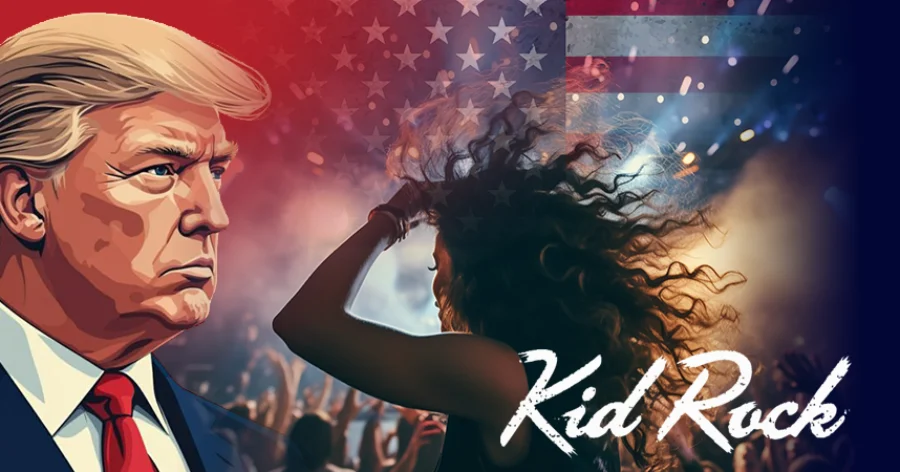On March 31, 2025, President Donald J. Trump signed a sweeping executive order aimed at curbing ticket price gouging and promoting transparency in the live event industry. The order empowers the FTC and Department of Justice to enforce stricter regulations against bots and deceptive pricing practices while mandating clearer consumer protections. It also requires a comprehensive report within 180 days on further legislative recommendations. Industry reactions have been mixed—some welcome the move as long overdue, while others warn it may lack enforcement strength without complementary legislation.
The order has ignited broad public and political debate about fairness, access, and the commercialization of live culture. With support from artists, industry bodies, and grassroots campaigns, the measure is seen as a potential turning point in regulating ticket markets, especially when paired with new technologies like blockchain-based ticketing. While critics stress the need for deeper structural reforms, the initiative marks a powerful signal against exploitative practices and a step toward restoring equity in the entertainment experience.
A Step Toward Greater Fairness in the Cultural Sector?
On March 31, 2025, U.S. President Donald J. Trump signed a sweeping executive order aimed explicitly at curbing price gouging in the sale of event tickets and promoting greater transparency in the ticketing industry. This directive is intended to protect consumers from unfair practices in a market that has increasingly been dominated in recent years by so-called ticket scalpers who use automated bots to acquire large quantities of tickets and resell them at exorbitantly inflated prices.
A Symbolic Signing Ceremony
The formal signing ceremony in the Oval Office was notably attended by musician Kid Rock, a well-known supporter of Trump. Kid Rock publicly endorsed the measure, emphasizing the importance of fair ticket pricing for fans. He pointed out how critical the situation had become, as real fans are often excluded from access due to inflated secondary market prices. President Trump, in turn, asserted that the executive order would help "bring justice and fairness back to the entertainment industry."
Regulation through Federal Agencies
The new order tasks the Federal Trade Commission (FTC) and the Department of Justice with taking decisive action to enforce existing antitrust laws. Particular emphasis is placed on combating the use of bots, which frequently purchase vast quantities of tickets mere moments after they go on sale. In the past, this has led to events selling out within seconds, forcing fans to resort to the secondary market, where ticket prices are often prohibitively high.
Additionally, the FTC is mandated to implement clear transparency rules for all stages of the ticket purchase process, particularly regarding hidden fees and misleading pricing structures. This initiative, long demanded by consumer advocates, seeks to allow buyers to see true ticket prices upfront, helping them make informed purchasing decisions. Hidden charges, service fees, and processing costs often raise the final ticket cost far beyond the initially advertised price.
Tax Oversight and Reporting Obligations
The executive order also directs the Secretary of the Treasury and the Attorney General to ensure that all scalper transactions comply with the Internal Revenue Code and all other applicable legal provisions. A comprehensive report outlining further legislative and regulatory recommendations is to be submitted within 180 days.
Industry Reactions
The initiative has been met with mixed reactions from industry leaders. Live Nation Entertainment, the parent company of Ticketmaster and one of the dominant forces in the ticketing market, publicly welcomed the executive order. The company emphasized the urgent need for more robust enforcement of the existing BOTS Act and advocated for the introduction of clear price caps for ticket resales. Live Nation also pledged to support the government in its efforts to improve market regulations.
Political Voices and Legislative Proposals
From the political arena, the executive order received varied evaluations. Senator Richard Blumenthal (Democrat, Connecticut) voiced his approval but emphasized that the order represented only an initial step. He referenced the "BOSS & SWIFT Act," introduced in 2023 by himself and fellow lawmakers. Named after Bruce Springsteen and Taylor Swift, the bill proposes broader consumer protections and increased transparency within the ticketing industry. Blumenthal called on the president to also endorse this bipartisan reform initiative.
Economic Impacts and Sector-Specific Concerns
Beyond political circles, industry experts have been actively debating the potential economic consequences of the new regulations. Supporters argue that more affordable ticket prices would democratize access to cultural events and reduce the gap between artists and audiences. Critics, however, warn of unintended consequences, such as a decline in secondary market revenue—an important income stream for some smaller event organizers.
Some analysts remain skeptical about the effectiveness of the new order. They argue that the directive largely reinforces existing laws and lacks the concrete resources and enforcement mechanisms needed for impactful implementation. Further concerns highlight the structural challenges of regulation in a market where many resellers operate internationally or through decentralized, blockchain-based platforms beyond national jurisdiction.
A Longstanding Problem in a New Dimension
Price gouging in ticket sales is not a new phenomenon. For decades, fans and artists alike have battled inflated prices in the secondary market. The use of bots has, however, intensified the issue dramatically. High-demand concerts by artists like Taylor Swift, Bruce Springsteen, or Adele often sell out within seconds, only for hundreds or thousands of those tickets to reappear instantly on platforms such as StubHub or Viagogo at sky-high prices.
Consumer Resistance
These developments have sparked considerable frustration among consumers. In recent years, protests and calls for boycotts have increasingly targeted scalpers and ticketing platforms. Various consumer advocacy organizations have long called for stronger legislation to better protect fans and bring equity to the marketplace.
International Precedents and Models
Other countries, such as the United Kingdom and Australia, have already implemented stricter laws and regulations to combat the ticket black market. These international examples may serve as a blueprint for the United States in its pursuit of long-term, sustainable reform. The Australian model, which legally limits resale markups to a maximum of 10% above face value, is frequently cited as a best-practice framework.
Digital Ticketing and New Technologies
In addition to legal measures, technological innovation may play a significant role in shaping the future of fair ticketing. Blockchain-based ticketing platforms, for instance, offer the potential for greater transparency, traceability, and security. These systems can make it nearly impossible for bots to exploit the market and may allow event organizers to maintain control over resale prices. Similarly, mobile ticketing systems with biometric verification are being tested to ensure tickets remain in the hands of actual fans, thereby diminishing the role of unauthorized resellers.
Public Support and Grassroots Movements
The growing frustration among fans has also led to the rise of grassroots initiatives aimed at reforming the ticketing system. Online petitions, coordinated social media campaigns, and community-driven watchdog groups have emerged to advocate for change. These movements reflect a broader cultural expectation: that access to live entertainment should not be dictated solely by profit motives but remain an inclusive and affordable experience.
A Catalyst for Structural Change?
Trump’s newly issued executive order could thus serve as a key catalyst for initiating broader systemic change. Experts emphasize that the long-term impact of the initiative will depend heavily on its consistent and transparent enforcement. If successfully implemented and accompanied by supplementary legal frameworks, the new rules could provide meaningful relief to millions of fans.
Cultural Sector Response
Artists, promoters, and venue operators are closely watching the situation. Many high-profile musicians, including Bruce Springsteen and Taylor Swift, have previously expressed strong criticism of bots and the secondary market, calling for more robust legislative safeguards. Industry associations like the National Independent Venue Association (NIVA) and the Recording Academy Advocacy Network also issued statements in support of the executive action, describing it as a long-overdue move to protect cultural access.
Broader Societal Implications
The issue of ticket price gouging also intersects with broader discussions about accessibility and equity in the cultural sphere. As live events become more integral to community identity and social interaction, ensuring fair access becomes not just an economic question but a social one. The executive order opens the door for policymakers to reevaluate how cultural goods are distributed in a free market, and what level of regulation is justified in order to protect public interest.
Outlook: A Promise of Greater Equity
The coming months will be crucial in determining how swiftly and comprehensively the relevant authorities can implement the executive order—and whether further legislative measures will follow. In the meantime, the directive sends a clear message to scalpers and resale platforms that unfair business practices will increasingly come under scrutiny.
President Trump’s decision marks a significant first step on the path to a fairer and more transparent ticketing system. The true test will be whether the intentions outlined in the order are followed by decisive action and enduring reform. The substantial public attention this initiative has already generated may help sustain the political momentum needed to drive meaningful change—and ultimately foster a more just, accessible, and equitable cultural experience for all.









